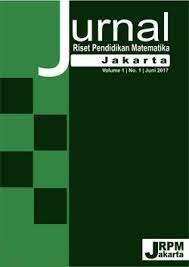Desain Pembelajaran Daring Matematika Berbasis Inkuiri Pada Materi Transformasi Geometri
DOI:
https://doi.org/10.21009/jrpmj.v2i1.23239Keywords:
instructional design, online, inquiry-based mathematics learning, geometry transformationAbstract
The COVID-19 pandemic has changed the instructional paradigm carried out in schools into learning from home. This causes the need for adaptation of new habits in the online learning process. This article presents an inquiry-based online mathematics learning design on geometry transformation material for high school students (SMA). The selected sub-material is reflection. The development of learning design begins with conducting student analysis, needs analysis, and task analysis focused on the material to be selected. Learning objectives and learning stages are also discussed in detail, and plans for formative and summative evaluations are discussed at the end of the article.




